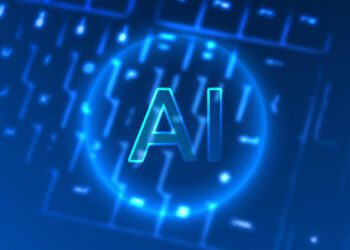Artificial Intelligence (AI) is revolutionizing various sectors across the world, and education is no exception. With the potential to personalize learning, automate administrative tasks, and provide valuable insights for educators, AI is undoubtedly reshaping the education landscape. However, it also brings several challenges. In this article, we delve into the opportunities and challenges that AI presents for the education sector.
AI in Education: The Opportunities
AI has the potential to transform education in numerous ways, offering opportunities for improvement and innovation:
- Personalized Learning: AI can analyze a student’s learning style, pace, and preferences to create a customized learning path. This personalized approach can help students better understand concepts, reinforce learning, and improve retention.
- Adaptive Systems: AI can adapt the content delivery based on a student’s understanding. If a student struggles with a concept, the AI can modify the teaching approach, offer additional resources, or slow down the pace.
- Intelligent Tutoring: AI-powered tutoring systems can provide individualized feedback, identify areas for improvement, and offer recommendations. These systems can supplement classroom instruction and provide one-on-one assistance when a human tutor is not available.
- Efficiency in Administrative Tasks: AI can automate administrative tasks such as grading assignments and scheduling, freeing up time for educators to focus on teaching and student interaction.
- Predictive Analytics: By analyzing data, AI can provide insights to educators, administrators, and policymakers. For instance, AI can identify learning gaps, predict student performance, or suggest changes to curriculum or teaching methods.
AI in Education: The Challenges
Despite the promising potential, the implementation of AI in education also comes with several challenges:
- Data Privacy: AI systems rely on collecting and analyzing vast amounts of data, which raises concerns about data privacy and security. Schools must ensure that they are complying with data protection regulations and safeguarding student information.
- Equity and Accessibility: There’s a risk that AI could widen the digital divide if certain groups do not have access to the technology. Schools must strive to make AI-based learning accessible to all students, regardless of their socioeconomic status or geographical location.
- Quality of AI Education Tools: Not all AI education tools are created equal. Some may not be based on sound pedagogical principles, and the effectiveness of others may not have been adequately tested. It’s important for educators to critically evaluate AI tools before implementing them in the classroom.
- Teacher’s Role: The adoption of AI in the classroom also brings into question the role of teachers. Teachers need to be adequately trained to use AI tools effectively and to understand how to best integrate AI into their teaching methods.
- Ethical Considerations: AI systems can be biased, reflecting the biases in their training data. There are also concerns about the impact of AI on student autonomy and the risk of over-reliance on technology for learning.
Conclusion
As AI continues to evolve, its role in education is likely to expand. The opportunities are immense, from personalized learning experiences to valuable insights for improving education systems. However, we must also address the challenges, particularly in terms of data privacy, equity, quality, and ethics. By doing so, we can harness the power of AI to enhance education, without compromising on the values and principles that underpin our education systems.



















